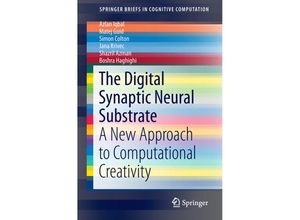This book describes a new computational approach to creativity. With chess as the domain of
investigation the authors show experimentally how a computer can be imbued with the 'spark' of
creativity that enables it to compose chess problems or puzzles that are both challenging and
aesthetically appealing to humans. This new approach called the Digital Synaptic Neural
Substrate (DSNS) mimics the brain's ability to combine fragments of seemingly unrelated
information from different domains (such as chess photographs and music) to inspire itself to
create new objects in any of them. Representing the cutting edge in computational creativity
research this book will be useful to students educators and researchers in the field as well
as artificial intelligence (AI) practitioners in general.



